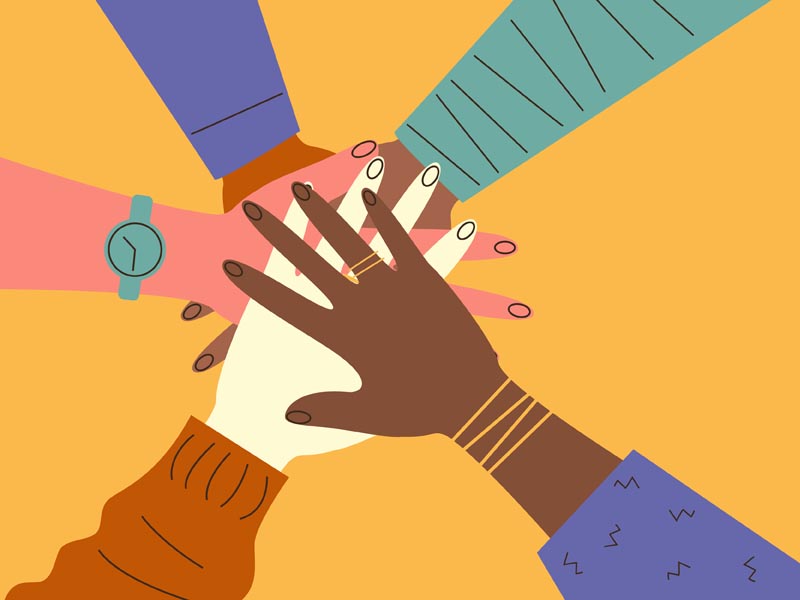
by Dr. Rita A. Gardiner
- 8 March 2023
Share:
International Women’s Day, 8 March 2023, offers us pause for thought as we reflect on the struggle for gender equality and equity around the world. As a student of women’s history, I am enamored by the bravery of the suffragettes who fought so valiantly to get women the right to vote. The fight for women’s rights has taken diverse pathways over the decades, but it is, at heart, a fight for justice.
The first country to grant all women the right to vote was New Zealand Aoteatroa in 1893 (Ministry for Culture and Heritage, n.d.). In 1902, Australia granted some women the right to vote, but Indigenous women were not fully enfranchised until 1962 (Schaeffer, 2020). In the UK, women did not achieve the same voting rights as men until 1928 (UK Parliament, n.d.). It took some countries even longer to give women the vote. For example, in France it took until 1944 (France 24, 2014) while women in Switzerland were not able to vote in national elections until 1971 and women in some countries were not given the right until well into the 21st century. Furthermore, we know that even today, even if they have the right to vote, many women are not able to equally access that right.
We know a lot about some of the leaders of various suffrage movements thanks, in part, to autobiographies, historical studies, and films such as the historical dramatizations Iron Jawed Angels and Suffragettes. Iron Jawed Angels looks at the life of Alice Paul, who wrote The Equal Rights Amendment introduced to the U.S. Congress in 1923 (Records of Rights, n.d.). Suffragettes delves into the movement in the U.K. through the lens of a fictional follower of the Pankhursts and includes dramatizations of some of the more militant actions undertaken. We know less about the rank and file of those involved in those movements.
a deep appreciation for others is emblematic of a collective fight against injustice.
I have a photograph in my office of my grandmother who, together with friends, looks just like someone who might be off to a march. She reminds me of Angela Lansbury in Mary Poppins Returns. What this photograph also suggests, aside from young women in stylish hats, is camaraderie. Such camaraderie and abiding friendships propel social movements forward. Moreover, a deep appreciation for others is emblematic of a collective fight against injustice.
Trying to overcome injustices is what social advocates, feminist or not, have been doing for generations. This is a different kind of leadership than what we find in many popular leadership books.
Hannah Arendt (1958) teaches us that leadership is about collective action, rather than some individual hero. She traces the etymology of the word “leadership” back to its Greek and Latin roots, discovering a connection between leadership and collective action. Over time this connection was lost and with it that sense of collective engagement. Our leadership discourse became impoverished. We focused on the individual leader who was somehow better than the rest of us. We confused leaders with leadership.
Looking to history teaches us why it is so important not to focus on the individual leader at the expense of others.
Engaging with the past is such an important aspect of any social movement. Anyone who has read about the women’s suffrage movement will know that in different countries it looked different. For example, in the UK there were connections with the working-class movement while in the USA, there were links with the abolitionist movement, although some women spoke out about being marginalized. Think of Sojourner Truth’s powerful rejoinder, “Ain’t I a Woman?”
Wherever there is social injustice, there will be people of all colors and creeds fighting to challenge societal wrongs. Through diverse movements such as #MeToo, the #IdleNoMore movement in Canada, the Feminist International in Argentina and Latin America, and #BlackLivesMatter we have seen diverse, collective leadership fighting injustice. There are so many movements that show courageous collective action. Many of those involved in these movements may not see themselves as leaders, but their protests remind us that leadership comes in many guises.
What these movements teach us is that leadership concerns us in the plural, not I in the singular. It is less about leaning in and more about leading out.
In my teaching about leadership and equity, I am drawn to the work of the late bell hooks. In her classes, I learned about the privilege I had as a White woman. I also learned that feminism must be an inclusive movement, open to everyone. If you have never read her book Feminism Is for Everybody: Passionate Politics, I encourage you to do so. And share it with your students. Her work reminds us of how we need to come together to solve ongoing injustices.
That coming together is vital if we want to not only improve our world for humans but also improve the planet for every living thing. In that vein, I ask you to consider the theme of this year’s International Women’s Day, #EmbraceEquity, something that I think you will agree is worth fighting for.
References & Resources
Learn more about the history of #IWD at https://www.theguardian.com/global-development/2023/mar/08/happy-international-womens-day-a-look-back-at-over-a-century-of-the-global-fight-for-justice-and-equality
Arendt, H. (1958). The Human Condition. Chicago UP
France 24. (2014, April 21). France Marks 70 Years of Women’s Voting Rights. https://www.france24.com/en/20140421-france-womens-voting-right-anniversary
Ministry for Culture and Heritage. (n.d.). New Zealand Women and the Vote. New Zealand History, Nga korero a ipurangi o Aoteatroa. https://nzhistory.govt.nz/politics/womens-suffrage
Schaeffer, K. (2020, October 5). Key Facts About Women’s Suffrage Around the World, a Century After U.S. Ratified 19th Amendment. Pew Research Center. https://www.pewresearch.org/fact-tank/2020/10/05/key-facts-about-womens-suffrage-around-the-world-a-century-after-u-s-ratified-19th-amendment/
UK Parliament. (n.d.). Women Get the Vote. https://www.parliament.uk/about/living-heritage/transformingsociety/electionsvoting/womenvote/overview/thevote/

Dr. Rita A. Gardiner is Associate Professor, Critical Policy, Equity, and Leadership Studies, in the Faculty of Education, Western University, Canada. An interdisciplinary feminist scholar, her publications include articles in Gender, Work and Organization, Business Ethics Quarterly, and Organization Studies. As Principal Investigator, Rita led a project team on a SSHRC-funded IDG grant examining the implementation of gender-based violence policies in Ontario universities. Currently, she is working on a new edited collection exploring genderwashing in leadership. This volume, co-edited by Wendy Fox-Kirk, Carole Elliott and Valerie Stead, will be published as part of the new ILA Women and Leadership series. Rita is honoured to serve as the President of the ILA Women and Leadership member community for 2022/23.

